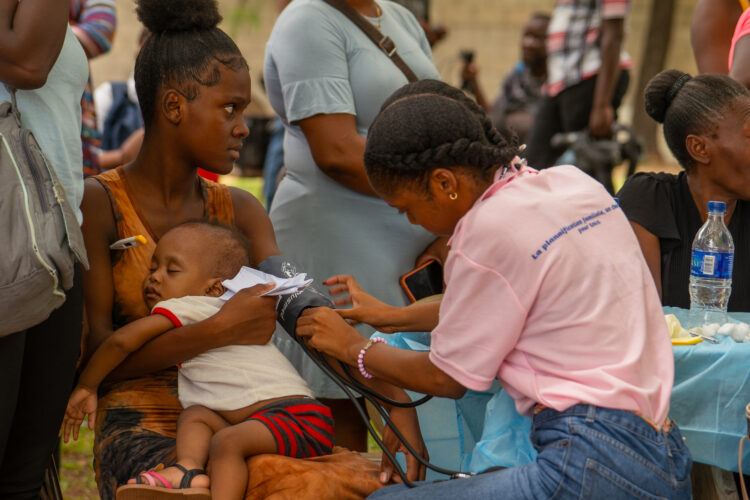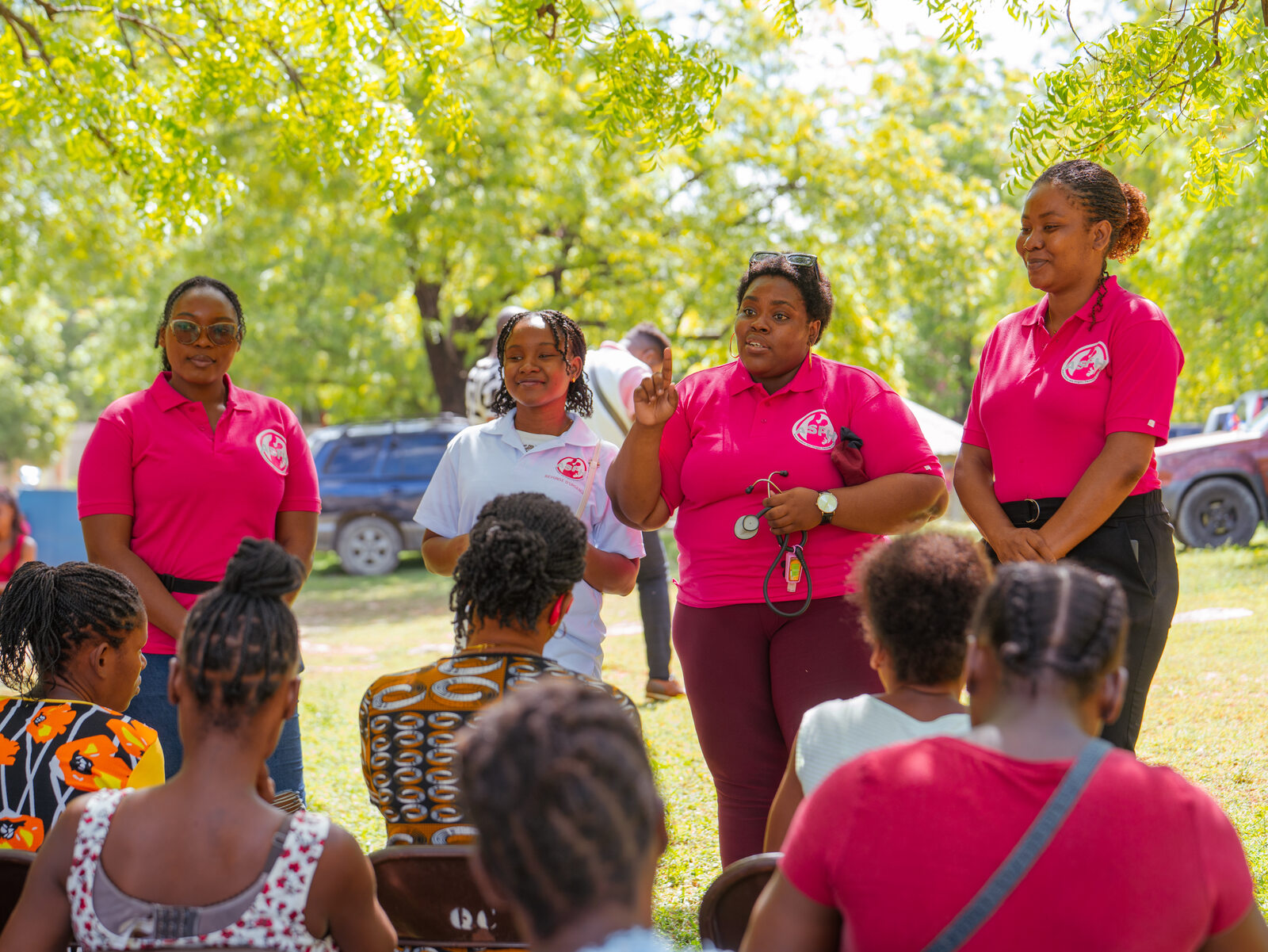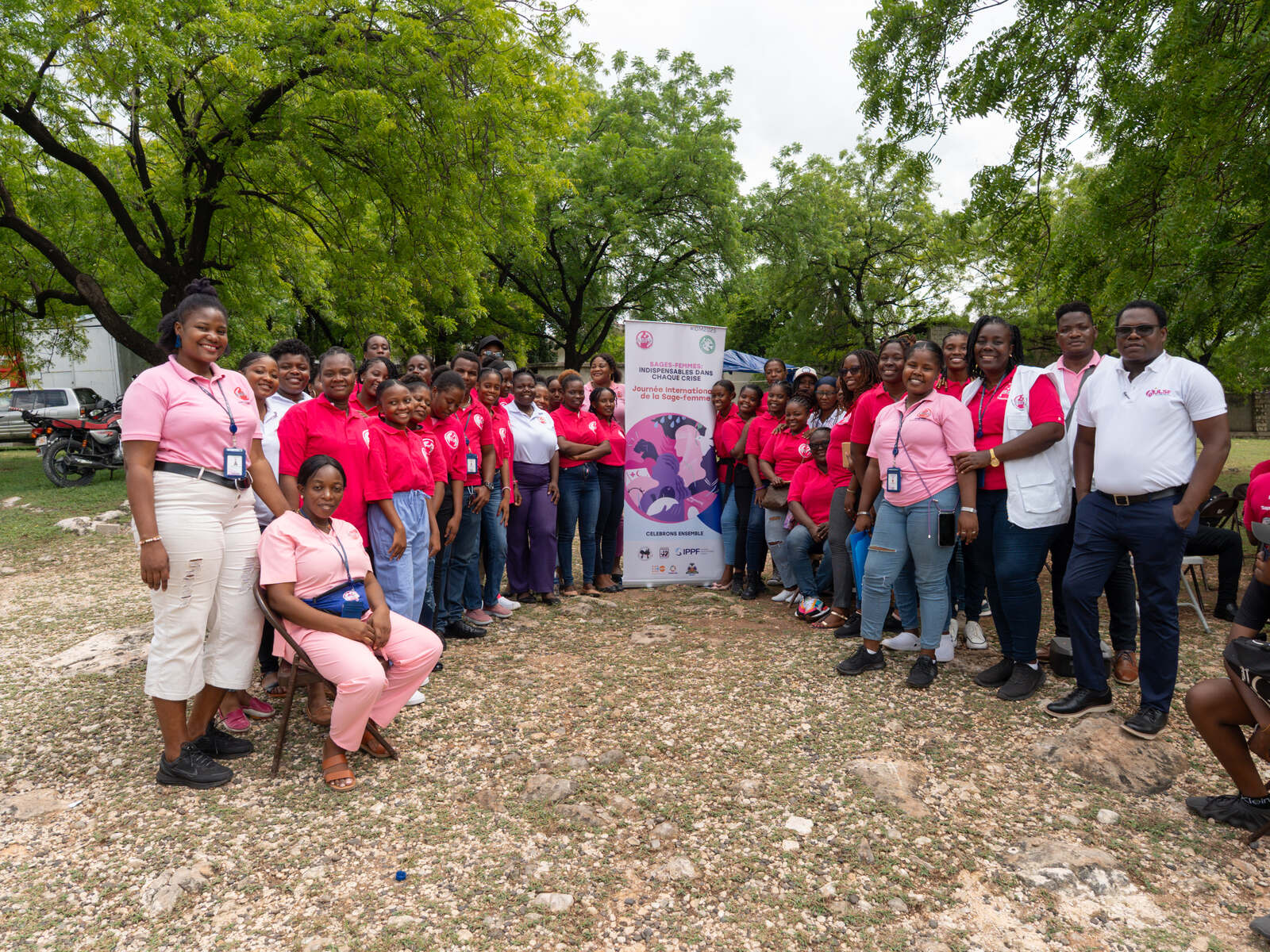Haitian Midwives Step Up in Crisis: A Mobile Clinic for Displaced Women and Girls

“Midwives: Critical in Every Crisis” — this year’s theme for the International Day of the Midwife (IDM) was brought to life through bold and compassionate action by the Association des Sages-Femmes d’Haïti (ASFH).
On 3 May 2025, during a continuing humanitarian emergency, ASFH brought together its members and partners to run a mobile clinic in Delmas, Port-au-Prince. The clinic provided essential sexual, reproductive, maternal, newborn, and adolescent health (SRMNAH) services to displaced and vulnerable women and girls. In a context of insecurity, widespread displacement, and a struggling health system, this initiative helped ensure women had access to vital care.
Responding to Urgent Needs in a Fragile Context
With thousands of women cut off from basic services due to violence, displacement, and infrastructure breakdowns, the ASFH-led clinic responded directly to an urgent public health need. Held in the courtyard of Quisqueya Chapel, the event welcomed over 280 women and girls—providing them with free, high-quality health care and information in a safe and respectful environment.
Services were offered by ASFH midwives alongside midwifery students, volunteers, and partners. Women benefitted from:
- Antenatal and postnatal consultations
- Family planning services and contraceptive provision
- HIV, syphilis, and cervical cancer screening
- Pregnancy tests and postnatal support
- Free access to prescribed medicines
In addition, over 200 dignity kits containing personal hygiene items were distributed, and participants received a warm meal at the end of the day.
Health Education and Community Engagement
 Throughout the event, ASFH midwives conducted interactive education sessions on:
Throughout the event, ASFH midwives conducted interactive education sessions on:
- Danger signs during pregnancy
- Prevention and care for sexually transmitted infections (STIs)
- Cervical cancer screening
- Contraceptive options
- Gender-based violence (GBV) awareness and referral pathways
These sessions empowered women with knowledge to protect themselves, access help, and make informed health decisions.
Advocacy, Visibility and Solidarity
A press briefing was held onsite to highlight the essential role of midwives in humanitarian response. ASFH showcased its training materials and simulation mannequins to raise awareness of midwifery education and the challenges midwives face.
The clinic was documented by the Foundation for the Advancement of Haitian Midwives (FAHM), with powerful images and testimonials shared on social media under the IDM theme. The message was clear: Midwives are indispensable in every crisis.
Collaboration in Action
This initiative was made possible through the efforts of ASFH midwives, student midwives from the national training institute, and a network of committed partners, including:
- FAHM (photographic documentation)
- UNFPA, IPPF, and the Canadian Association of Midwives (financial and logistical support)
- Haitian Ministry of Public Health and Population (distribution of health materials)
- Local pharmacies and medical suppliers (medication donations)
Together, they demonstrated the power of partnership in meeting the urgent needs of women in humanitarian settings.
Results and Lasting Impact

- 280 women and girls received integrated SRMNAH care.
- 200 dignity kits were distributed.
- 50+ health professionals and volunteers were mobilised.
- ASFH strengthened its visibility as a key actor in crisis response.
- Communities were informed, engaged, and empowered.
Midwives on the Frontline
In Haiti, as in many crisis-affected regions, midwives are not only health care providers — they are educators, protectors, and advocates for women’s rights and dignity.
ASFH’s mobile clinic initiative stands as a powerful example of how midwives continue to lead with courage and care, even in the most precarious of circumstances.